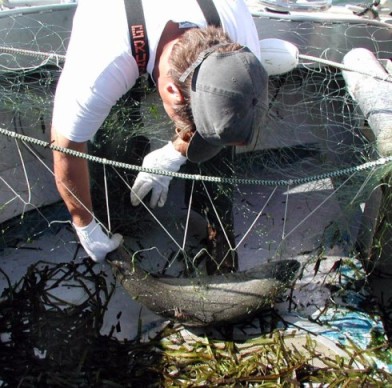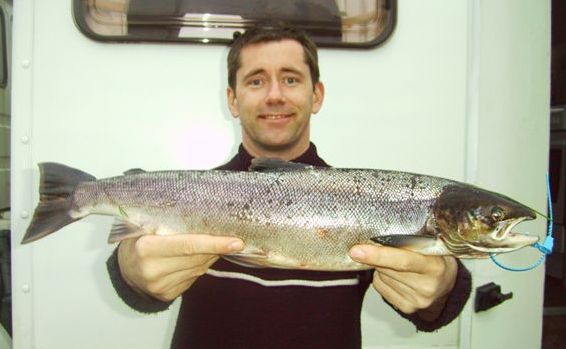Illegal poaching
Poaching salmon from Lough Neagh rivers like the Moyola has been a tradition which has probably been around for many more years than angling itself.
Indeed the recent Toome bypass revealed a wealth of important archaeological finds which indicated that early settlers concentrated their activities on waterways, foraging on the shores of the lough and the local rivers.
Indeed the recent Toome bypass revealed a wealth of important archaeological finds which indicated that early settlers concentrated their activities on waterways, foraging on the shores of the lough and the local rivers.
Such were the runs of salmon through the River Bann and into the Lough Neagh rivers, that poaching would have made little impact in those days.
But that was then and this is now.
As salmon stocks continued to decline the poaching activity on the rivers and Lough Neagh itself continued unabated. This undoubtedly sped-up the near-collapse and extinction of the Atlantic salmon in the Lough Neagh rivers.

Brought back from the brink, by the reduction in pollution and salmon conservation measures taken by local angling clubs such as the Moyola, salmon numbers have steadily increased in recent years, but still under the dark and now invisible cloud of the poachers' new monofilament nets.
Moyola anglers and bailiffs have carried out their own patrols in recent years, with the co-operation of the FCB and Bann Systems in an effort to remove nets from around the mouth of the Moyola in Lough Neagh.
While prevention is one means of tackling the problem of poaching, these poachers need to be educated into the dangers facing the future of salmon stocks in our river.
Every hen salmon which is captured by illegal poachers, is denying the river of up to five thousand eggs and threatening the very survival of this endangered species.
While some poachers may argue that anglers catch and kill these very same salmon, the Moyola Angling Association has urged its members to adopt a catch and release policy and they have also introduced a one-fish-per-day policy during certain months of the season.
One of the key activities of the club is also the voluntary running of the hatchery, from where thousands of salmon fry are released each year.
Poaching is just one of the threats facing salmon stocks, but is one which can be prevented.

Local hotels, restaurants and food outlets must ensure that every 'wild Atlantic salmon' which they purchase has a blue FCB tag, which proves the fish has been captured by legal means.
With improved future policing of our waterways and the education and subsequent changing of attitudes among poachers, we will hopefully see many more salmon continue on their mammoth journey from the sea, into the River Bann, through Lough Neagh and make their way to their spawning homes in the babbling streams at the foothills of the Sperrins.
Report poaching and email any information or pictures to info@moyolaangling.com
Or contact The Pollution Hotline 0800 807060

